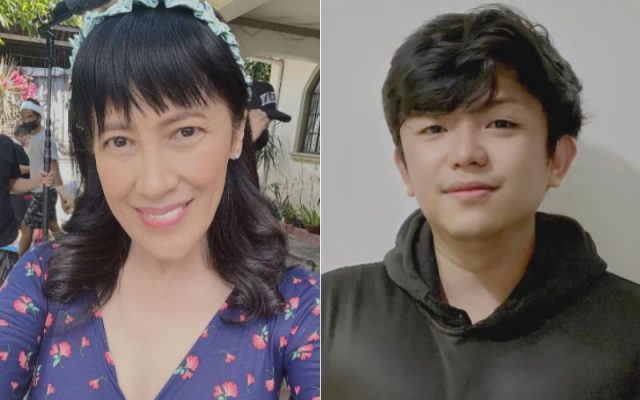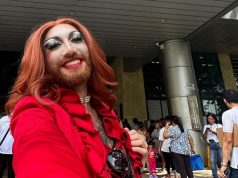
“That freedom of expression is not absolute.”
(Updated; June 8, 6:43 p.m.) A city council has approved a resolution declaring comedienne Ai-Ai delas Alas and controversial director Darryl Yap as “personae non gratae” following a video they produced.
The Quezon City Council on Tuesday approved a resolution filed by outgoing District IV Councilor Ivy Lagman to declare the two personalities as such for disrespecting the city government’s official seal.
“The malicious and unscrupulous defacing of the official seal of Quezon City ridiculed and [cast] dishonor to it, causing insult to the noble representation of the seal,” her resolution reportedly reads.
“The people of Quezon City will not let anyone disgrace the official seal of Quezon City for personal and selfish interests,” Lagman added.
The seal has been the city’s official coat of arms since it was approved by the Office of the President and adopted by the City Council through Resolution 10320, S-1975.
Lagman, meanwhile, filed the resolution months after Yap’s Facebook page posted a video in April that featured Ai-Ai portraying a character named “Ligaya Delmonte,” which was perceived to be a play on the name of the city mayor Joy Belmonte.
Ai-Ai’s background showed a triangular seal associated with the city, with its visual elements edited with the text “BBM SARA.”
“BBM” are the initials of president-elect Ferdinand “Bongbong” Marcos Jr. while Sara pertains to his running mate in the 2022 elections, vice president-elect Sara Duterte-Carpio.

The video had the caption “Mike Defensor for Quezon City Mayor!”
Rep. Mike Defensor (Anakalusugan party-list) lost to Belmonte in the May 9 elections.
It’s about the seal
Lagman on her Facebook page argued that people who disrespect the city’s official seal should be declared “persona non grata.”
“Maybe this will make all content creators think twice before posting anything on social media such as these videos. That Freedom of Expression is not absolute,” she wrote on Tuesday.
“Hindi naman basta-basta nalang po na pwede tayo mag-post ng mga gusto natin na hindi man lang pinag-isipan mabuti kung ano ang mga laman ng mga pinalalabas natin sa mga tao,” the city councilor added.
“Kung ang Freedom of Expression mo ay hindi minsan nararapat—katulad ng pagsayaw mo habang pinapatugtog ang national anthem o ang paggamit sa Philippine Flag ng hindi tama, etc., huwag natin itong gawing laging rason para lang mambastos,” Lagman further said.
She also added that the issue is not against Marcos Jr. and Duterte-Carpio, but about the defacement of the city’s official seal.
“Quezon City prides itself [on] many achievements and showcases itself through its distinct corporate seal, the triangle with the pylon of Quezon Memorial Circle. It is created based on the powers given to the city through its Charter, Commonwealth Act No. 502 and Section 22(a)(3) of the RA7160 or the Local Government Code,” Lagman said.
“Mahal po namin ang Quezon City at ang lokal na pamahalaan nito ay aming nirerespeto. Sana kayo rin,” she continued.
The declaration of persona non grata to Yap and Delas Alas earned laudatory comments from some Filipinos online.
“On point. The official Seal of LGU should be respected,” a Twitter user said in response to the resolution’s approval. “LGU” pertains to local government unit.
“Good job, QC! May hangganan ang kabastusan at kababuyan,” another online user said with a clapping emoji.
“This is more symbolic than anything, but it’s a good thing that the QC Council is calling out malicious behavior (these are unenforceable considering the right to freedom of movement iirc),” a different Filipino said.
A Twitter user pointed out that the declaration is among the entitlements of local government units to express disapproval of individuals.
“PNG: Delas Alas & Yap. In the Philippines, local legislatures of provinces, towns, and cities can declare certain people or groups as persona non grata, (PNG), to c. This could be in response to the person breaking local ordinance or laws,” the user wrote.
A deeper look
The phrase “persona non grata” is defined as “an unacceptable or unwelcome person.”
In New Latin, it means “unacceptable person.”
A former congressman was similarly declared as such in Ilocos Norte in 2017.
One of its provincial board members said that while it doesn’t prohibit a person from going to the area, it was made to “manifest or express” their sentiments towards the individual.
Lawyer Claire Castro explained that an individual could be tagged as a “persona non grata” if he offends a person or a place.
“Kapag ang isang tao nao-offend niya ang isang tao o lugar, minsan nagkaka-resolution ang isang lugar sa mga nakaka-offend ng culture or norms nila na magdeklara ng persona non grata,” she said in a 2019 radio interview.
Castro added that an individual could also be declared as such if one does not show indebtedness.
“Parang ikaw na tinanggap namin nang buong-buo, in-offend mo ‘yung feelings namin,” she said from the perspective of a local resident.
Lawyer Gideon Peña tweeted that to declare a person as such “means that a person is not welcome in the place that declared such status.”
“But it does not mean that said person cannot actually go there. Refer to Art. III, Sec. 6 of the Constitution,” he added.
Section 6 of Article III of the 1987 Constitution states the following:
“The liberty of abode and of changing the same within the limits prescribed by law shall not be impaired except upon lawful order of the court. Neither shall the right to travel be impaired except in the interest of national security, public safety, or public health, as may be provided by law.”









